John Chambers, the former CEO of Cisco Group, states that the global market now experiences a rapid change due to the adoption of digital tools and techniques, empowering buisness strategies to improve brand voice.
The online brand awareness aims to create a strong market reputation and brand consistency, focusing on corporate advantages and profitability.
It is expected that by 2027, the global market of digitalisation will reach $3.9 billion. It shows the significance of a brand’s visibility in digital platforms, procuring market opportunities for long-term business success.
What is Online Brand Awareness?
Online brand awareness refers to the level of recognising of consumers and their engagement with a brand via online platforms and several digital channels. It means how well consumers can recognise or recall a brand or its products and services through its logo or other imagery representations. Online brand awareness influences customer engagement on digital platforms, as well as the future market opportunities with competitive values.
Research shows that companies allot 10-20% of their annual budget for branding and rebranding, while 60% of companies said that the consistency in branding not only increases brand awareness but ensures additional revenue of 10-20%.
Brand awareness campaigns play a key role in empowering brand essence and identity in the global market, while the changes associated with business programs foster a better corporate environment for companies with distinct brand awareness strategies.
As the digital market is evolving on a significant scale, it has been necessary for companies to maintain a strong brand image in the regional and global markets. Brand awareness empowers brand personality and identity in the market, empowering competitive advantages in the global market.
A study finds that 81% of customers cannot buy products from a company until they trust the brand. Brand awareness stands for organisational recognition among the target audience, based on products, values, and logos. A strong brand awareness drives product and service sales on a significant scale, creating reliable business opportunities for companies, as per the market conditions.
Why is Brand Awareness Important for Brand Loyalty and Perception?
1. Influencing Purchasing Decisions
Putting a brand on the map not only creates a virtual hype on digital platforms, but also to attract new customers with different requirements.
A well-known and well-accepted brand advocates for product or service facilities through eye-catching brand awareness campaigns, influencing the purchasing decisions of the target audience.
As brand familiarity influences customers’ decisions regarding products and services, developing brand knowledge is important to attract new customers and influence potential customers as well.
2. Developing Credibility and Trust
Raising brand awareness is essential to develop trust and credibility of products and companies among customers, while meeting consumers’ demands is significant to enhance brand identity.
Developing brand trust and credibility ensures that people will remember the brand, and their repurchasing decisions regarding the same product will include the brand with priorities. People can have faith in products and brand promises, as well as feel an emotional connection and ensure brand loyalty.
3. Increasing Customer Loyalty
Brand awareness develops comfort and familiarity, ensuring a long-term customer relationship. Customer loyalty, driven by emotional connections, has increased to 34%, from 26 % in 2021. Brand awareness influences customer loyalty by ensuring a comprehensive idea about products and services. Increasing customer loyalty, on the other hand, empowers brand recognition, attracting new audiences for products.
However, customer loyalty influences the purchasing decisions of consumers, even if some cheaper alternatives are available.
4. Developing Brand Perception
The idea regarding a brand and its services is created through brand awareness, and a positive brand awareness campaign develops a credible brand perception among customers.
It shapes brand position and identity in the market, empowering brand values and qualities. Brand awareness is significant to create a buzz about new products and services and their potential benefits.
5. Word-of-Mouth (WoM) Marketing
Research shows that WoM marketing influences millennials by 115%, as their purchasing decisions are deeply motivated by suggestions from their friends.
Brand awareness plays a key role in influencing positive word-of-mouth marketing. Satisfied customers of companies or a particular product are likely to recommend them to others, enhancing brand loyalty and impacting customer and user behaviours.
Digital Strategies to Build Brand Awareness and Recognition
1. Consistent Brand Messaging to Develop Brand Image
The target audience and their preferences rapidly change in the current market, while the emergence of new potential customers plays a key role in shaping brand recognition and image.
Consistent messaging is one of the key awareness strategies to improve brand voice and acceptance in the global market. If you share high-quality content on digital platforms, you can ensure higher consumer engagement and market-based activities.
However, effective social media activities empower a brand’s presence in the market, as through them, companies can reach customers with minimal effort. The compelling and consistent brand messaging draws potential buyers from different backgrounds with a long-lasting impression.
Research shows that a consistent brand colour is effective in increasing brand knowledge by 80%.
Let’s take an example.
What comes to mind when you hear about the brand Coca-Cola? The logo and the colour. Throughout the years, the company has maintained the iconic dark red and classic white colour, which has been effective for brand recognition and recall.
2. Increasing Customer Engagement
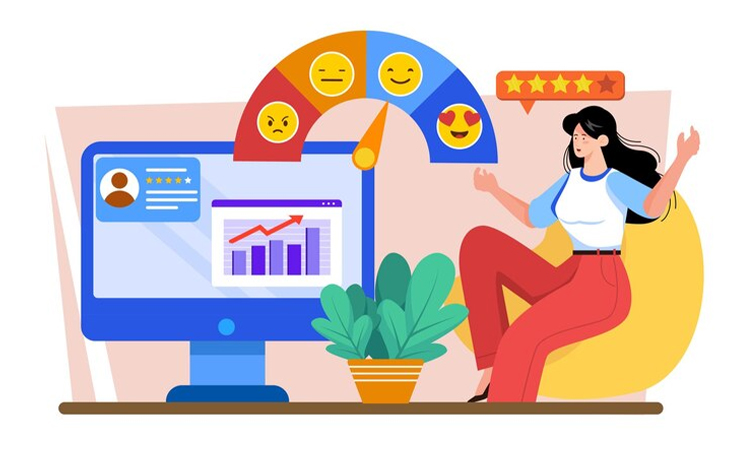
Brand awareness for e-commerce sites, as well as offline businesses, tends to create memorable and remarkable experiences for old and new users, fostering two-way communication.
Research shows that 77% of consumers consider brands for online shopping, only those that they follow on social media. It is also observed that 82% of global marketers advocate for social media platforms for brand ideas to increase customer engagement.
Brand awareness leads to the development of a strong brand personality, incorporating a constant brand messaging and marketing strategy, increasing customer engagement on a significant scale. Customer engagement through social media activities and partnering with social media influencers is advantageous to promote core values of the business and secure long-term business opportunities.
For example, if company A aims to launch a new product P, it can use social media platforms like Instagram and Facebook for brand awareness campaigns to increase customer engagement. Research shows that to build brand awareness, highly engaging Instagram accounts, along with influencers, can increase post reach by 5%-7%.
3. Market Analysis and Developing Long-term Campaigns
The market conditions rapidly evolve due to internal and external factors, while companies try to emerge as a game changer by providing consumer-based services.
Research states that based on social media monitoring, the share of global market research revenue is observed at 2.8%.
The emergence of competitors and audiences with different tastes influences business outcomes and practices. In this regard, long-term brand management strategies and campaigns for MNCs and small businesses include effective business and market analysis.
Long-term influencer marketing is valuable for increasing brand knowledge, while effective market analysis is required to understand consumers’ demand and market trends. For market analysis programmes, companies may use several tools.
A comprehensive idea about the market and valuable web traffic is advantageous for creating a better brand awareness programme, as new audiences can be drawn from different market corners.
For example, if you run a food business and find out that customers are more likely to avoid cheese-based dishes, you’d avoid such dishes from your branding list. It can put your brand top of mind and draw new customers.
4. Leveraging Effective and Relevant Marketing Channels

By leveraging valuable marketing channels for brand awareness through user-generated content, companies can focus on examining customer preferences, while developing engaging content and considering multiple channels, such as social media, content and e-mail marketing, is advantageous to increase brand awareness.
Key strategies for brand awareness are driven by leveraging social media platforms, empowering a reliable online presence through SEO and partnering with digital influencers and paid advertising.
Research shows that Facebook is the most popular social media network in the UK, with 96% of brand awareness. However,95% of consumers consider YouTube and Instagram for finding products, followed by TikTok and Snapchat (93% and 90%).
You should know consumers’ preferences along with the development of strong buyer personas. You can use available consumer data to develop visual content. On the other hand, focusing on the development of relevant, engaging, and valuable content marketing is also advantageous to increase brand awareness. Apart from it, developing an interesting brand name and guest posting are valuable to develop market-based opportunities and brand awareness.
Influencer marketing and public relations are valuable to leverage brand awareness with brand credibility and customer trust, while positive media coverage and developing professional relationships are important for long-term brand awareness. You can also use reliable metrics, such as customer sentiments, search volume and social media engagement, to examine brand popularity and monitor web traffic. Analysing conversion rates is also important for improving brand knowledge, as you can develop new leads for sales.
Tools used for Brand Awareness Strategies
1. Woorise
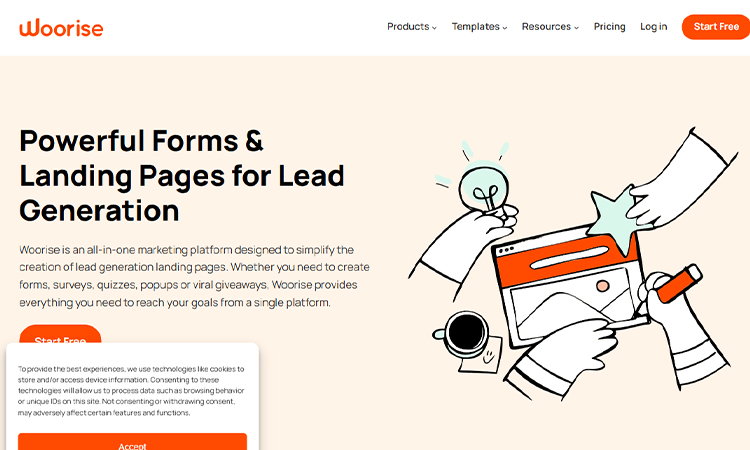
- It is a remarkable marketing platform, designed to develop lead generation for branding.
- Woorise creates surveys, forms, popups and quizzes regarding products and companies, empowering branding and brand-based programmes.
- It conducts online surveys to procure data and insights regarding customers’ preferences, influencing informed decision-making for businesses.
- It creates quizzes, using functional quiz makers, which further empowers customer engagement and business share.
- Woorise builds viral contests, giveaways and competitions, increasing customer engagement as per business goals.
2. Survey Monkey
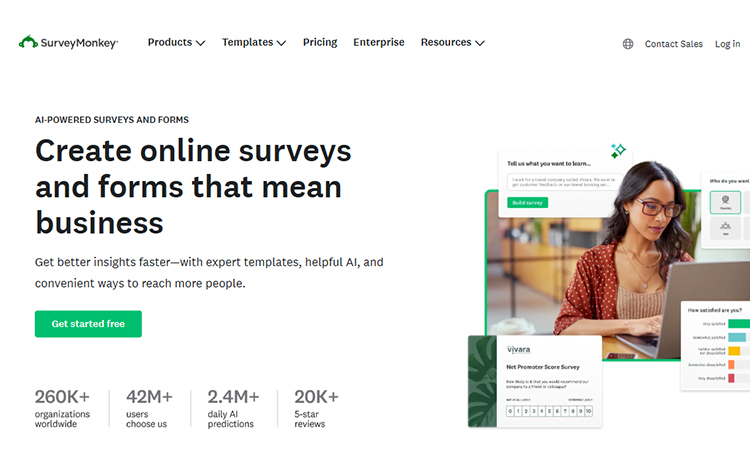
- It provides an awareness template, based on the Brand Pulse Survey, empowering awareness and visibility of companies.
- SurveyMonkey measures the impact of marketing campaigns in different market conditions.
- It identifies how customers associate with a brand’s attributes and how their perception grows.
- SurveyMonkey provides a funnel template, examining different stages of brand awareness based on products and services.
3. MailChimp
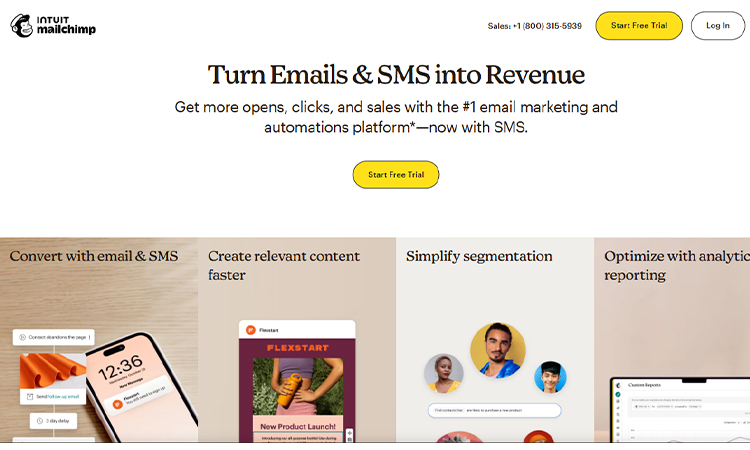
- The email marketing tool, MailChimp, plays a key role in reinforcing and increasing brand awareness and developing a strong brand identity. It sends and creates email campaigns with numerous personalised contents according to consumer preferences and behavioral frameworks.
- It provides drag-and-drop email templates and different analytics for optimising brand awareness campaigns.
- It is an easy-to-use tool to share and customise email marketing to reach audiences effectively.
- The tool is beneficial for personalising and automating campaigns based on consumers’ interests and preferences.
- You can target and segment your audience to deliver effective and relevant marketing messages.
4. Sprout Social
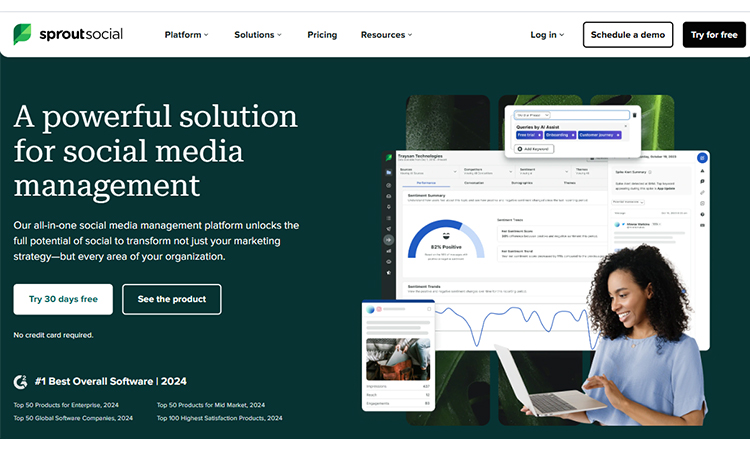
- It empowers integration and partnerships, which further unify customer touchpoints in different market landscapes.
- SproutSocial provides market insights without any additional investment in onboarding.
- It uses AI-based workflow design, which accelerates business processes based on real-time practices and decisions.
- By using creative and strategic approaches, it elevates businesses through tools and techniques, while its social network integration and Salesforce partnership ensure brand awareness on a significant scale.
5. UpFluence
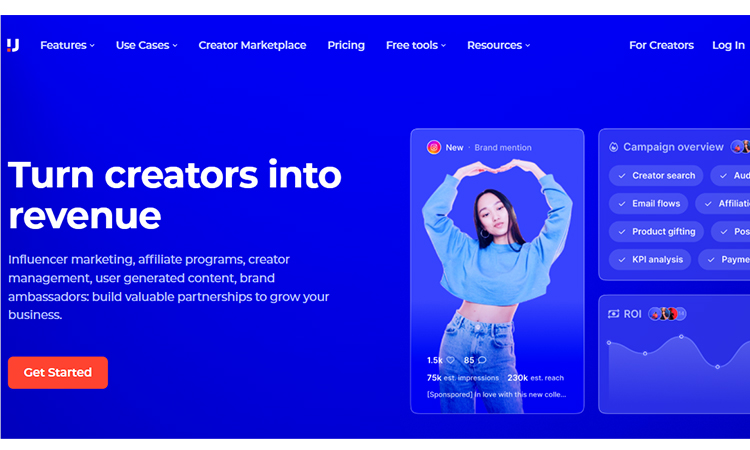
- It is one of the leading platforms to connect influencers with businesses, promoting services and products to followers and users. It influences the audience as well as the brand strategies to reach new audiences and build brand awareness.
- Upfluence plays a key role in attracting brand ambassadors, measuring brand awareness, creating partnerships and analysing their performance.
- It exclusively connects with social media influencers, aligning with audience and brand values.
- UpFluence fosters conversion metrics and real-time business engagement to analyse and monitor influencers’ performance.
- It focuses on long-term collaborations with brand ambassadors to build brand awareness for long-term practices.
Tips for Developing an Online Brand Awareness
- Understanding Market Traits and Popular Demands
Based on different economic and socio-cultural differences, the market conditions vary.
The market evolves due to socio-economic and socio-political factors, while the changes associated with the market impact consumer choices and preferences. In this regard, you must have strong market knowledge, such as social and economic trends, influencing customers’ market decisions.
On the other hand, over time, the popularity of industrial products has changed on a significant scale, while the changing preferences for customers can be observed from different search engine results.
In this regard, you should be critical in developing brand awareness regarding products according to their popularity and stakeholder values.
- Adequate Knowledge Regarding Social Media Trends
Research expects that by the end of 2025, the number of global social media users will reach 5.42 billion, with an average of 6.83 different social platforms used by every individual per month.
You should be aware of social media trends, such as using appropriate hashtags and slogans to increase brand awareness for long-term business success. As the market might become volatile due to the rapidly changing trends and practices, you must be aware of different upcoming scenarios to promote your brand and build brand awareness to attract consumers.
- Know Your Competitors and Their Approach Towards the Market
You might have competent and familiar people on your board, but if you do not have any idea about others’ decks, your branding strategies could miss the bull’s eye.
In this regard, you should know not only the users or customers, but also your competitors’ strategies and market vision. It can shape your ideas about upcoming market conditions and people’s requirements, to enhance brand awareness and set an example in respective industries.
Significance of Strategies and Tools for Brand Awareness
1. Improving Market Acceptance
Your strategic vision and market-centric practices are two key factors to ensure your brand acceptance through customer engagement. In this case, improving brand awareness and public knowledge is important in creating a strong brand personality and identity to boost your business with long-term business success.
On the other hand, valuable content marketing and the use of Google Analytics are also effective in securing a strong knowledge of the brand’s pros and cons based on public knowledge and opinions. It can boost your brand voice and name compared to other brands.
2. Enhancing Competitive Advantages
Remember, the market can be ruthless if you fail to follow its demands and trends with comprehensive values. Empowering robust brand awareness campaigns is required to procure competitive advantages in the global market, so that you can secure a reliable brand engagement and optimise your business strategies. However, using different marketing channels is beneficial to gather customer data regarding their preferences for services and products to increase stakeholder engagement, followed by organic search results.
Moreover, by using different branding tools, you can improve your competitive advantages, as they can guide your marketing approach and business strategies. Through these tools, you can procure knowledge regarding your market trends and scenarios, boosting your business and its competitive growth.
3. Improving Brand Recognition
You need to share and post regularly to create a reliable and active brand recognition programme to succeed in the market. Content marketing is not enough to enhance your brand recognition, as the market evolves and demands change due to demographic factors, such as age, gender and lifestyle preferences.
In this regard, using digital tools and techniques to acquire a better market vision is important to increase business potential and strategic approaches for long-term market success.
For example, if you run a family business, you might experience a group of customers with similar requirements, while the preferences for Gen-Z customers are expected to be different due to societal factors and their lifestyles.
In this regard, you should have a comprehensive idea about specific groups to empower brand reputation and solidify market position.
4. Creating a Sustainable Business Environment
Research shows that 60% of customers are ready to pay more if they can access sustainable products and services. Consistent brand messaging about sustainable products and services is advantageous to empower business acts and activities, while the changes associated with the market and customers’ demand are required to be adopted on a significant scale.
By choosing green marketing to enhance brand knowledge, you can attract consumers with eco-awareness from different socio-economic and socio-cultural backgrounds.
Conclusion
Your market engagement through reliable approaches and activities is required to increase customer engagement, empowering the brand knowledge on a significant scale. In this regard, using several tools and techniques for long-term branding programmes is advantageous to secure a competitive spot in the market.
The constant engagement of software devices and tools is also effective for companies to examine market conditions and practices, while the challenges and opportunities can be identified for further strategic approaches.
On the other hand, the collective values of your market approaches and business-based strategies ensure the sustainable growth of a business, as eco-aware customers have been a key part of the global market.
However, if you fail to empower branding programmes for your company or products, you can hire a reputation management agency to improve reputation monitoring and reputation protection through brand awareness strategies.

